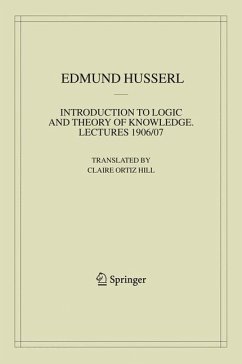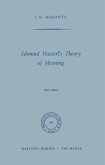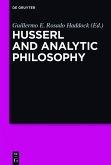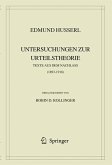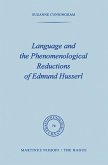Claire Ortiz Hill The publication of all but a small, unfound, part of the complete text of the lecture course on logic and theory of knowledge that Edmund Husserl gave at Göttingen during the winter semester of 1906/07 became a reality in 1984 with the publication of Einleitung in die Logik und Erkenntnistheorie, Vorlesungen 1906/07 edited by 1 Ullrich Melle. Published in that volume were also 27 appendices containing material selected to complement the content of the main text in significant ways. They provide valuable insight into the evolution of Husserl's thought between the Logical Investigations and Ideas I and, therefore, into the origins of phenomenology. That text and all those appendices but one are translated and published in the present volume. Omitted are only the "Personal Notes" dated September 25, 1906, November 4, 1907, and March 6, 1908, which were translated by Dallas Willard and published in his translation of Husserl's Early 2 Writings in the Philosophy of Logic and Mathematics. Introduction to Logic and Theory of Knowledge, Lectures 1906/07 provides valuable insight into the development of the ideas fun- mental to phenomenology. Besides shedding considerable light on the genesis of phenomenology, it sheds needed light on many other dimensions of Husserl's thought that have puzzled and challenged scholars.
Dieser Download kann aus rechtlichen Gründen nur mit Rechnungsadresse in A, B, BG, CY, CZ, D, DK, EW, E, FIN, F, GR, HR, H, IRL, I, LT, L, LR, M, NL, PL, P, R, S, SLO, SK ausgeliefert werden.

